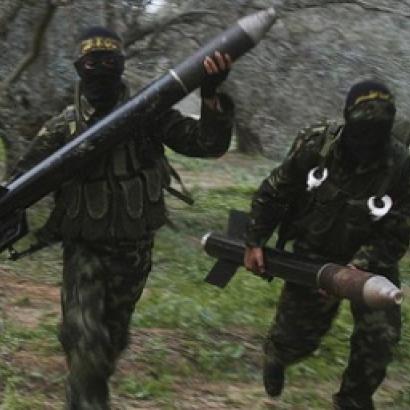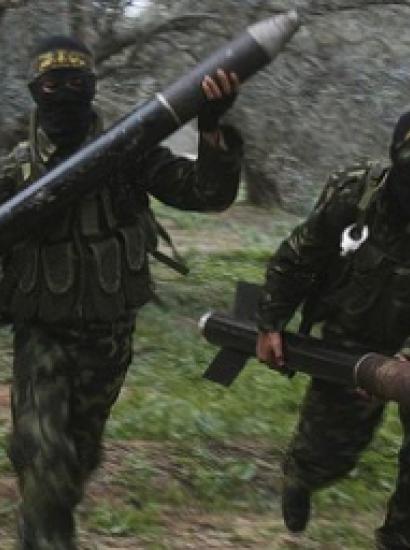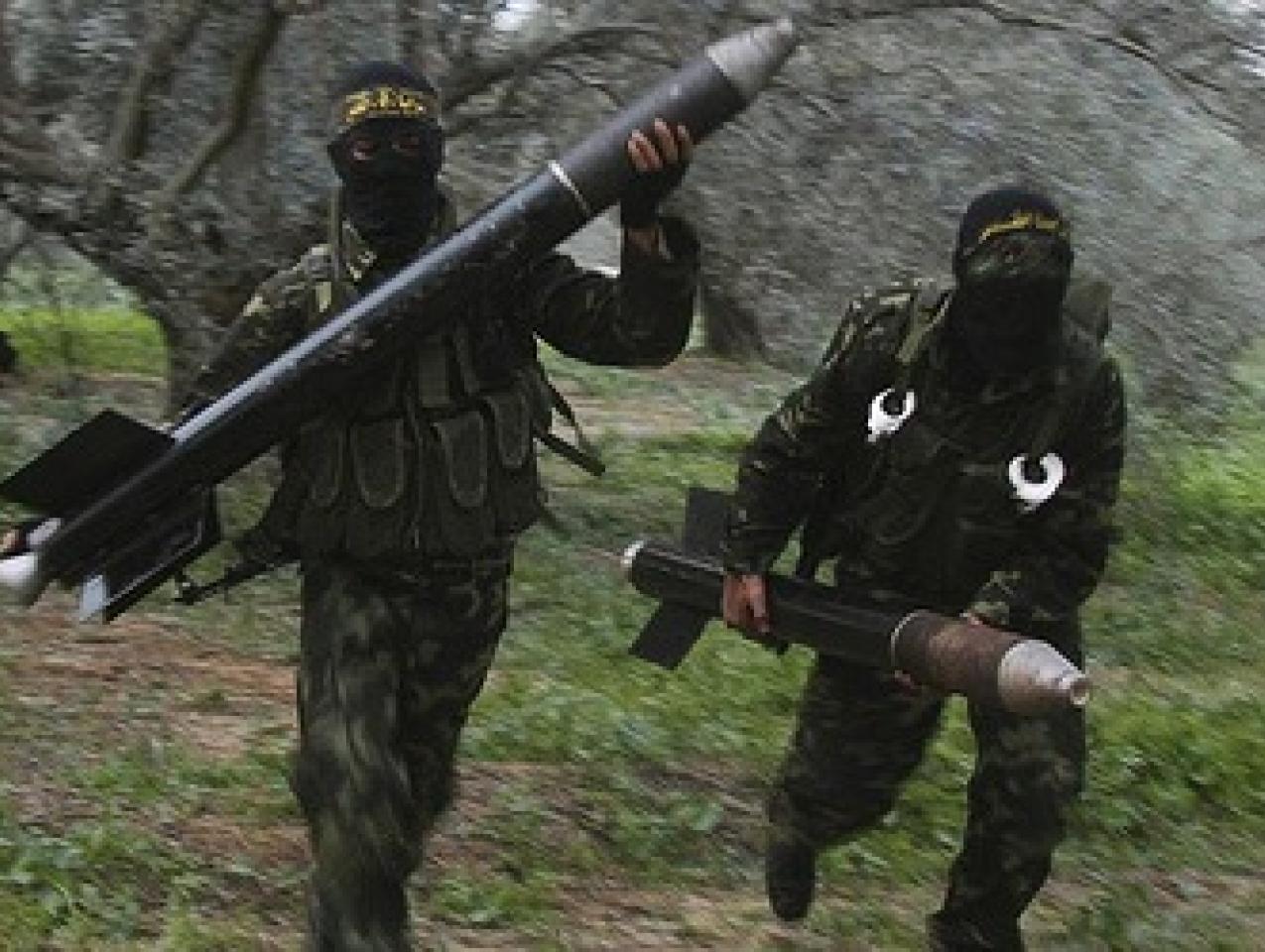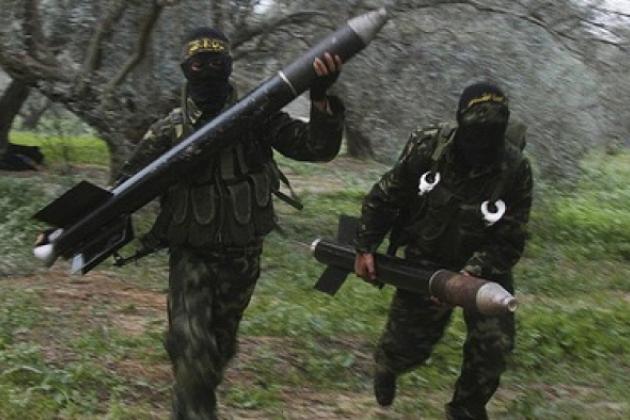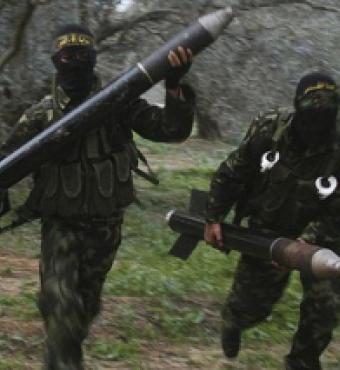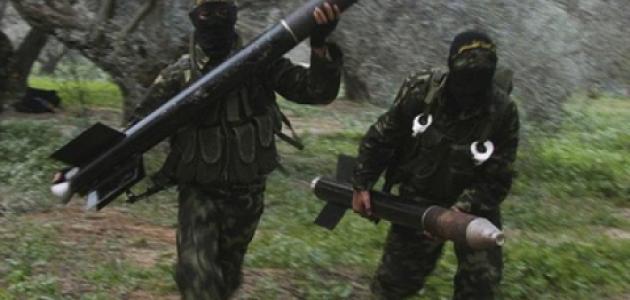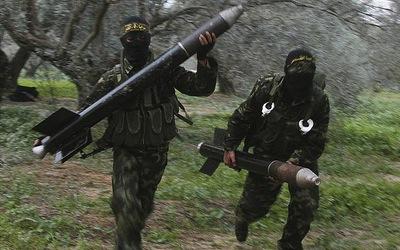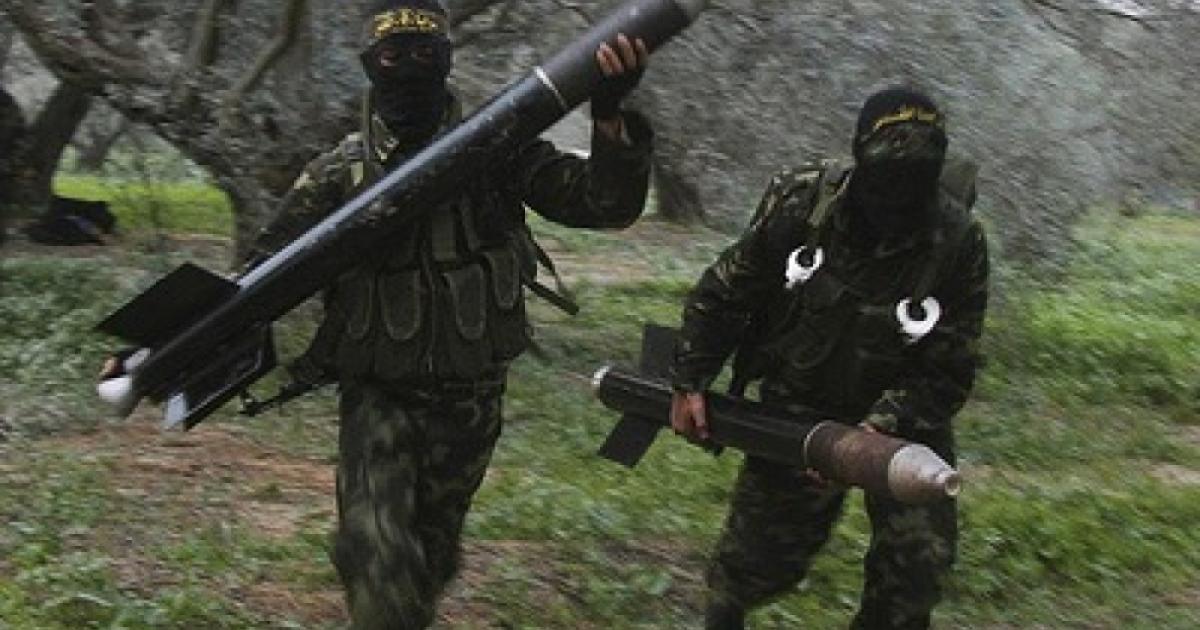Editor’s note: This essay was originally delivered as a response to an address by Cardinal Theodore McCarrick, Archbishop Emeritus of Washington, DC, at a conference, “Religious Freedom & Human Rights: Path to Peace in the Holy Land – That All May Be Free” (Catholic University, Sept. 9, 2013).
I want to thank my good friend, the remarkable Michael Sean Winters, for inviting me to participate in this conference. I am grateful to the Catholic University for the opportunity to discuss with this distinguished gathering the important matters before us. And it is a privilege and an honor to respond to, or really elaborate on issues raised by, Cardinal McCarrick.
I begin with a provocation:
Today it has become evident that leaders and members of the Islamic Movement in Israel enjoy more freedom and rights than the Muslim Brotherhood in Egypt, Jordan, and even—under the Palestinian Authority in the West Bank—Hamas.
Those are not my words. They are not the words of the Israeli government. They are not the words of an American Jewish organization.
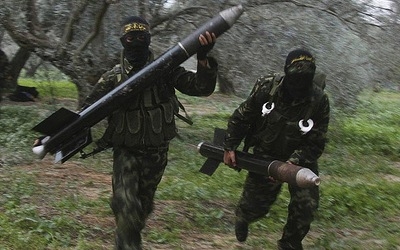
Palestinian militants on the outskirts of Gaza (Photo credit: Amir Farshad Ebrahimi)
Rather, those words highlighting individual freedom in Israel are the words of my friend Khaled Abu Toameh.
Khaled is a remarkable man. He is an Arab-Muslim citizen of Israel; his father was an Arab citizen of Israel and his mother a Palestinian from beyond the Green Line. Khaled writes for the Jerusalem Post; for more than twenty years he has been a producer and consultant for NBC News; his articles have appeared in U.S. News and World Report, the Wall Street Journal, Al-Fajr, and other newspapers; and he is a fellow at the Gatestone Institute.
As one who has roots in and reports from both sides of the Green Line and who puts his life on the line for the news he publishes and the opinions he expresses, Khaled Abu Toameh’s words carry special weight. But at the end of the day, Khaled’s words are important because they are true. They are empirically verifiable and consistent with what we know about Israel and the countries that surround it.
Writing a few weeks ago, Khaled further observed the following about the fundamental rights of minorities in Israel:
Arab journalists and columnists in Israel have been expressing their views about the Egyptian crisis without fear, while their colleagues in Egypt, Jordan and the Palestinian Authority are afraid to speak their mind.
Israel, for example, is one of the few countries in the Middle East where Muslims are permitted to demonstrate in favor of ousted Egyptian President Mohamed Morsi and his Muslim Brotherhood organization.
This is not because Israel supports Morsi or the Muslim Brotherhood; it is because the Muslim protesters [in Israel] know that in a democratic country like Israel they can hold peaceful demonstrations and express their views without having to worry about being targeted by the authorities.
Israel has become a safe place not only for Arab Christians, but also for Muslims who wish to express their opinion away from intimidation and violence.
While pro-Morsi demonstrators are being shot, wounded, arrested and harassed in Egypt, the Palestinian Authority-controlled territories and some Arab countries, in Israel they are free to stage protests and express their views even in the heart of Jerusalem and Tel Aviv.
In Israel, pro-Morsi demonstrators even feel free to chant slogans against Israel and the U.S., and to hoist Hamas flags.
Unfortunately, these illuminating facts about freedom and human rights in Israel are often overlooked in Western reporting.
Indeed, it is likely that few people in this room—and you are informed and you care—were aware that in August, Muslim Arabs in Israel demonstrated in support of deposed Egyptian President Morsi at the al Aqsa Mosque in the old city of Jerusalem, in Nazareth, and outside the Egyptian embassy in Tel Aviv. And that in these demonstrations no Arab citizen of Israel was detained or injured.
Meanwhile, the situation is dramatically different in the West Bank under the control of the Palestinian Authority. The PA has made clear that public shows of support for Morsi and the Muslim Brotherhood will not be tolerated, and the PA has detained and arrested those who have expressed sympathy for the Muslim Brotherhood.
One could go so far as to say that the freest Arabs in the Middle East are the Arab citizens of Israel. It is important to immediately emphasize that by virtue of their citizenship, Arab Israelis enjoy all the political rights—not only of speech, but also of religion, voting, assembly, and the rest—that Jewish citizens of Israel enjoy.
In pointing out the glorious extent of political freedom in Israel, I do not mean to paper over the disabilities that minorities in Israeli can suffer. Israel faces challenges within its borders as a Jewish state devoted to the individual freedom and equality under law of all its citizens. As in other liberal democracies, so too in Israel: political rights do not always translate directly into first class treatment for minorities. And Israel faces challenges beyond its borders, particularly in regard to the Gaza Strip, where Palestinians have governed themselves since Israel’s withdrawal in 2005, and in the West Bank where, though it has substantially reduced its presence, Israel shares authority with the PA.
I trust you will hear a great deal today about the challenges that Israel faces both inside its borders and beyond them in safeguarding human rights, and that you will hear much about Israel’s shortcomings. That is proper. Israel has a vital national security interest in securing the rights of all of its citizens, and in assisting Palestinians in the West Bank and Gaza in securing their rights. Moreover, recognizing its shortcomings is crucial if Israel is to meet its challenges and advance its interests.
But Israel’s challenges, shortcomings, and interests must be understood in context. Israel, the nation-state of the Jewish people, is a liberal democracy devoted to the principles of freedom and equality. The state of Israel has made great strides in a short time under extremely demanding circumstances in honoring those principles. And the state of Israel can expect that it will confront extremely demanding circumstances for quite some time to come as it seeks to make further progress in honoring its promise of freedom and equality to all its citizens.
The basics of Israel’s promise of religious freedom in particular and freedom and equality more generally are worth restating.
Israel protects the free exercise of religion. Its guarantee of religious freedom for all of its citizens is grounded in the Declaration of the Establishment of the State of Israel. The Declaration, read by David Ben Gurion on May 14, 1948 as five Arab armies prepared to invade and destroy the new Jewish state, proclaims that Israel
will foster the development of the country for the benefit of all its inhabitants; it will be based on freedom, justice and peace as envisaged by the prophets of Israel; it will ensure complete equality of social and political rights to all its inhabitants irrespective of religion, race or sex; it will guarantee freedom of religion, conscience, language, education and culture; it will safeguard the Holy Places of all religions; and it will be faithful to the principles of the Charter of the United Nations.
In 1992, Israel reaffirmed the centrality of individual freedom through enactment of the Basic Law: Human Dignity and Liberty. The Israeli Supreme Court has held that “dignity” in the Basic Law encompasses freedom of religion for all citizens.
In deference to the sensibilities of its Muslim citizens, the government of Israel has gone so far as to bar Jews from praying on the Temple Mount. Keep in mind that while the Temple Mount, home to the al Aqsa Mosque and the Dome of the Rock, is the third holiest site in Islam, it is also for Jews the site of the First Temple and the Second Temple, the mountaintop where, according to Jewish tradition, Abraham bound Isaac, and it is believed by observant Jews to be the site where the Third Temple will be built.
Israel also guarantees the right of workers to observe the holidays and weekly day of rest of their religion.
For all of its guarantees of religious freedom, Israel does not strictly separate religion and the state as we do in the United States. There is no established religion in Israel. But the government recognizes and even provides financial support to a wide variety of religions.The government, for example, maintains religious courts for the different faiths of Israel; these religious courts have jurisdiction over matters of personal status. The government funds organizations that provide religious services to the various religious communities. And of course the government applies norms and practices that derive from the Jewish tradition to certain sectors of the public sphere—for example, the army serves kosher food and the official day of rest is the Jewish Sabbath.
The larger problem in Israel may involve the protection of Jewish citizens’ rights to be free from religion. In particular, non-Orthodox Jews in Israel chafe at state-supported religious authorities dictating matters in personal areas such as marriage and conversion.
Beyond the securing of formal political rights, Israel has much work to do in improving the situation of its minorities. Ultra-Orthodox Jews, who live a life largely apart from the secular majority, constitute about 9% of the population and 12% of the Jewish population. While respecting their religious liberty, Israel must devise incentives to encourage them to acquire the basics of a liberal education, to take part more fully in the work force, and to serve in the army. Israel must also strive to improve the lives of its Arab citizens, who constitute almost 21% of the population. Even as Israel safeguards the political rights of Arab citizens’—to express their opinions, worship as they wish, serve in the Knesset, sit on the Israeli Supreme Court, and all the other political rights enjoyed by all Israeli citizens— Israel must channel greater resources to enhance the physical infrastructure in Arab communities and improve Arab schools. And Israel must craft reforms to impose on Arab citizens too the obligations of national service.
No discussion that touches upon human rights and Israel can be adequate that does not address the condition of Palestinians living in the Gaza Strip and West Bank. Israelis and Palestinians face formidable issues including security, settlements, refugees, water, borders, and Jerusalem. However these thorny issues are resolved, the rights of the Palestinians will not be fully realized until the Palestinians establish for themselves—with the cooperation of Israel, the active assistance of the United States, and the support of the international community—a liberal and democratic state that recognizes Israel as a Jewish, liberal and democratic state, and is dedicated to living side-by-side with Israel in peace and security.
Unfortunately, since Israel evacuated Gaza in 2005, the Palestinians of Gaza have moved in the opposite direction. Hamas seized control of the government in Gaza from the Palestinian Authority in June 2007 in a bloody coup. Today Hamas rules Gaza by force and tramples on rights. Hamas, furthermore, is publicly dedicated to the destruction of the state of Israel; has launched thousands of mortar shells, rockets, and missiles at Israel; and continues to seek to import destructive weapons, including missiles that can reach Tel Aviv and beyond. As a result, Israel has been compelled to adopt a defensive posture toward Gaza, which includes a naval blockade. The UN’s 2011 “Report of the Secretary-General’s Panel of Inquiry on the 31 May 2010 Flotilla Incident”—also known as the Palmer Report—concluded that Israel’s blockade was legal under international law, justified by military necessity, and consistent with the discharge of Israel’s humanitarian responsibility.
In the West Bank, Palestinian President Mahmoud Abbas is now serving the ninth year of the 4-year term to which he was elected in 2005. Meanwhile, Israel has withdrawn from some of the most populous sections of the West Bank, eliminated roadblocks, and lifted travel restrictions. Since 2007, the West Bank economy has grown steadily, in 2008 and 2009 enjoying double-digit growth. And Israel cooperates with the PA on security matters, the collection of taxes, commercial enterprises, and more.
In June 2009, in a historic speech at Bar Ilan University, Benjamin Netanyahu became the first conservative prime minister of Israel to endorse the necessity and the justice of negotiating a two-state solution that recognizes the national aspirations of both Jews and Palestinians.
To this day, no Palestinian leader has made a speech like Netanyahu’s that recognizes the right of a Jewish, liberal, and democratic state to exist side-by-side in peace and security with a Palestinian state. Instead, in September 2012 in an address to the UN General Assembly, President Abbas denounced Israel and, by urging the United Nations to recognize a Palestinian state, sought to bypass the negotiated settlement provided for in UN Resolutions 242 and 338 as the method for resolving the conflict between Israel and the Palestinians. And the Palestinian Authority continues to conduct a campaign of vilification of Israel though state-run media, the educational system, and speeches made by PA political leaders in Arabic.
The path to peace in the Holy Land passes through the mutual recognition by Israelis and Palestinians of the legitimacy of the other side’s national claims and the inalienability of their human rights. The path to peace in the Holy Land requires that both Israel and the Palestinians grasp that painful concessions are not only warranted by justice but by the vital interests of both peoples in peace and security.








